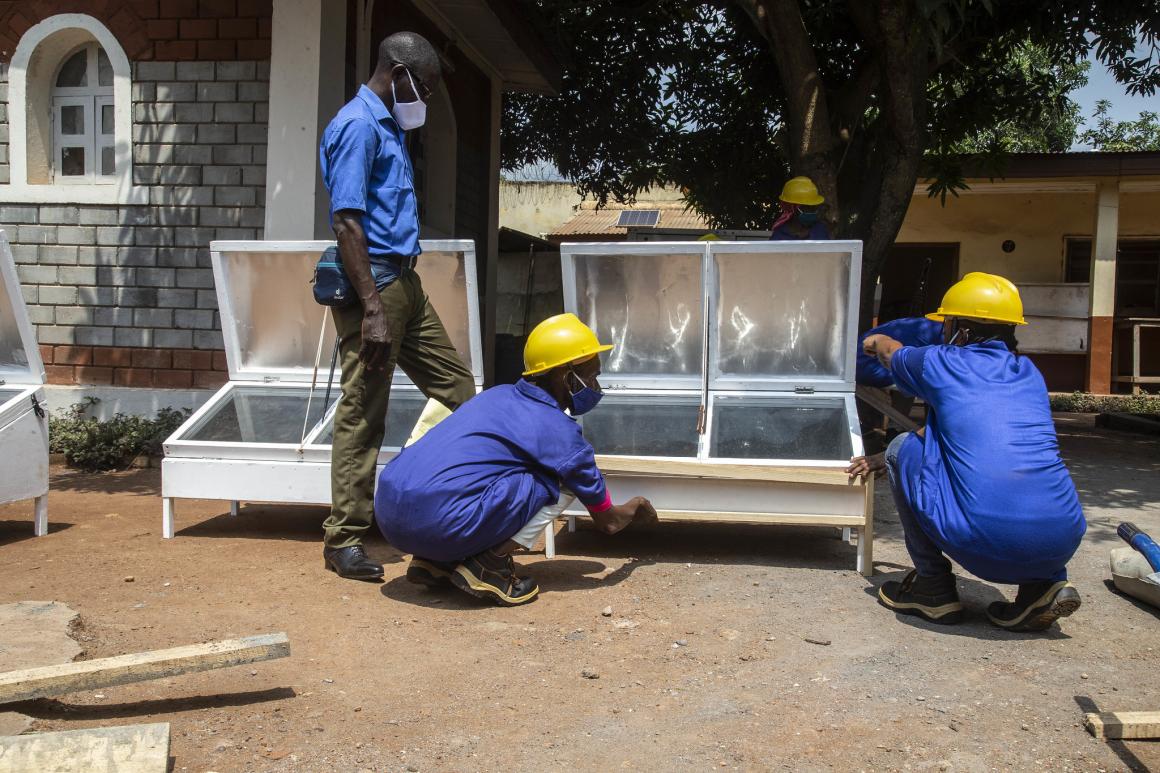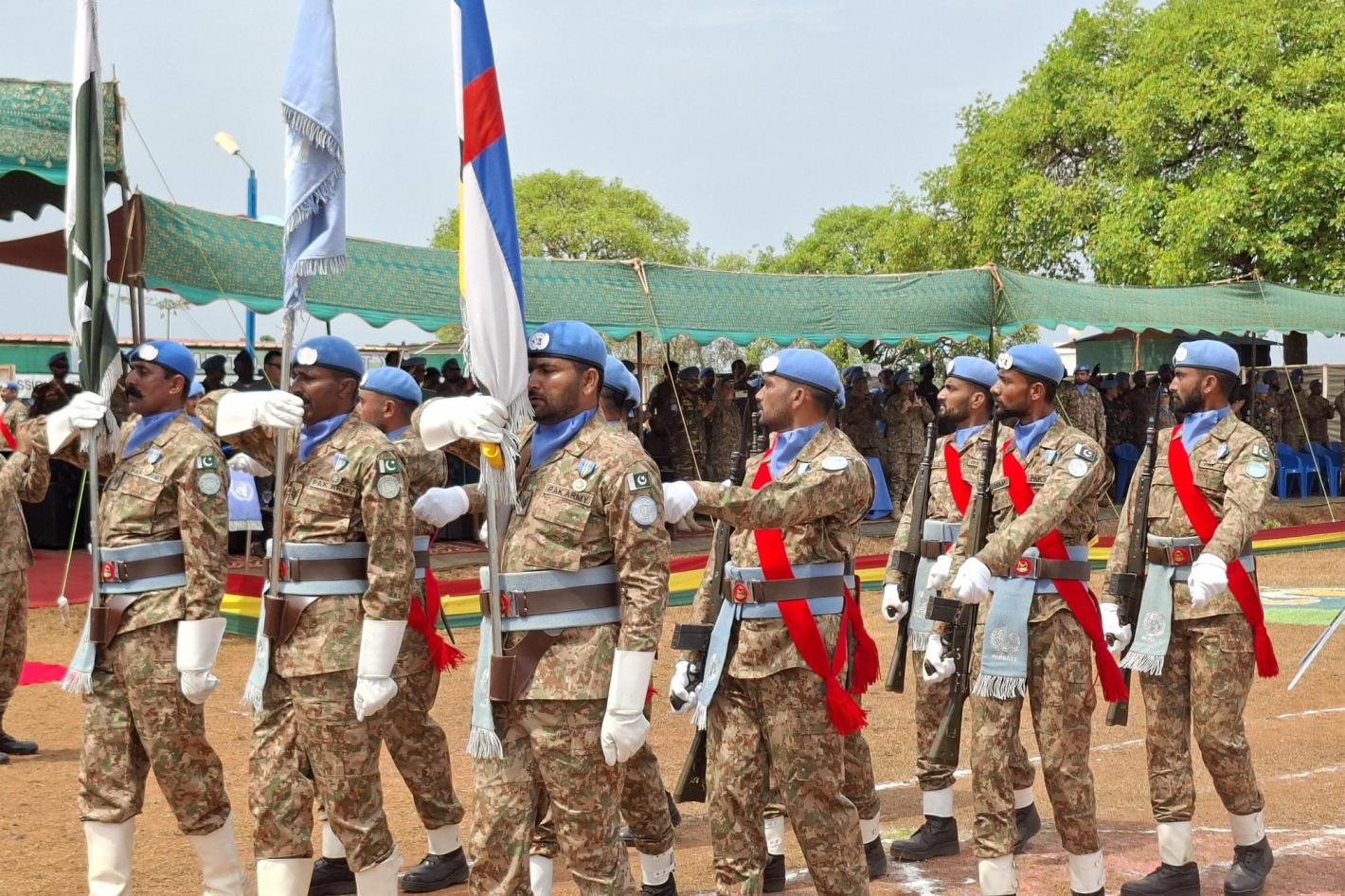Plumbing is the profession of choice for 20 inmates at the Ngaragba central men’s prison in Bangui, Central African Republic. Among them is Aubin (not his real name), whose day begins with the same ritual: donning the obligatory work clothes and especially the safety shoes. After receiving instructions from the trainers, he and his teammates get to work ...
He is one of 50 apprentices, including 7 women, who are undergoing vocational training organized for convicts at the Ngaragba prison and the Bimbo women’s detention and correctional facility in the country’s capital. Plumbing, carpentry and the production of solar ovens are the trades of choice for this group of trainees.
"We were taught about piping. I now know how to distribute water and how to install sanitary appliances in a bathroom. If God gives me life, I will go out and apply myself,” says Aubin.

The four-month training (March to June 2021) was made possible courtesy of the Central African Ministry of Justice and implemented by the non-governmental organization Penal Reform International, with the support of MINUSCA.
At the Bimbo prison, attentive trainees measure, cut and lay out the rods and sheets that make up the solar cookers they are learning to make, under the watchful eye of trainer Mangada Riche Aban, who is also a carpentry teacher at the Bangui Technical High School. “The objective of this training is to prepare them for reintegration so that when they leave, they can, either individually or in cooperatives, engage in income-generating activities to meet the needs of their families,” he explains while also highlighting that the production of solar cookers helps address another issue of national concern – deforestation to meet household needs for firewood.
Participants hope to find a better life and especially employment once they’ve served their sentences. This is the aim of the project – to allow inmates at the end of their sentences to obtain jobs thanks to the training they have received, which would lead to a decrease in recidivism rates.
“As soon as I get out of prison, I will not be taking any chances, if the good Lord lends me life. I have children and grandsons to take care of. If I manage to have my own equipment, I will take people without jobs under my wing and show them what I have learned,” pledges a sexagenarian who requests anonymity.
Serge, in his early thirties, also harbours new dreams after his carpentry training. A year and a half ago, shortly after his conviction, the world was falling apart around him. “I thank MINUSCA for bringing us this project. I thought it was over for me. I did not have a job before; now I already have a job. When I’m out, I’ll be able to make furniture such as beds, chairs and wardrobes,” he says confidently. He sounds like a man with a newfound purpose: “People think that someone in prison has nothing to do, that his or her life is ruined. But I realized that here, in the central prison, we have learned something that could be useful in the future.”
The training, which is aimed at promoting the social reintegration of prisoners, is part of the implementation of the national strategy of demilitarization of prisons in the Central African Republic. Beneficiaries will receive certificates – proof that they are now able to exercise their trades.






